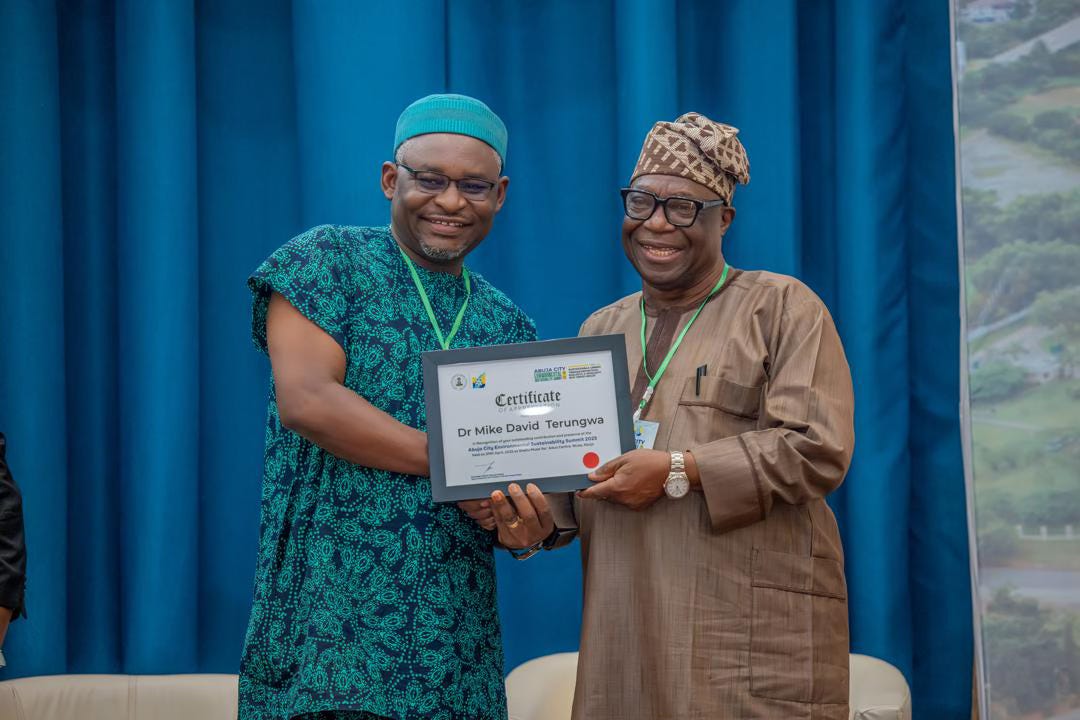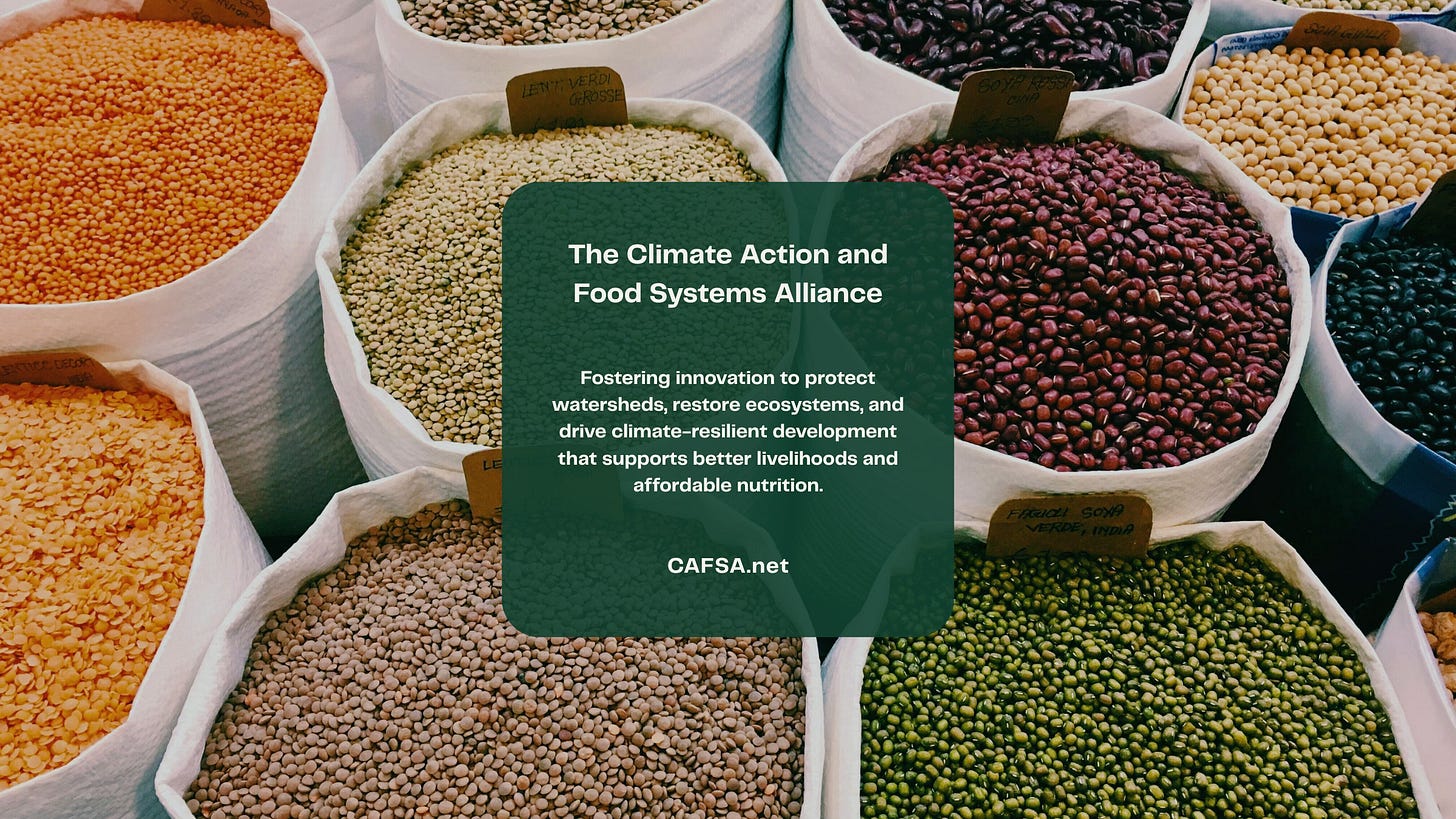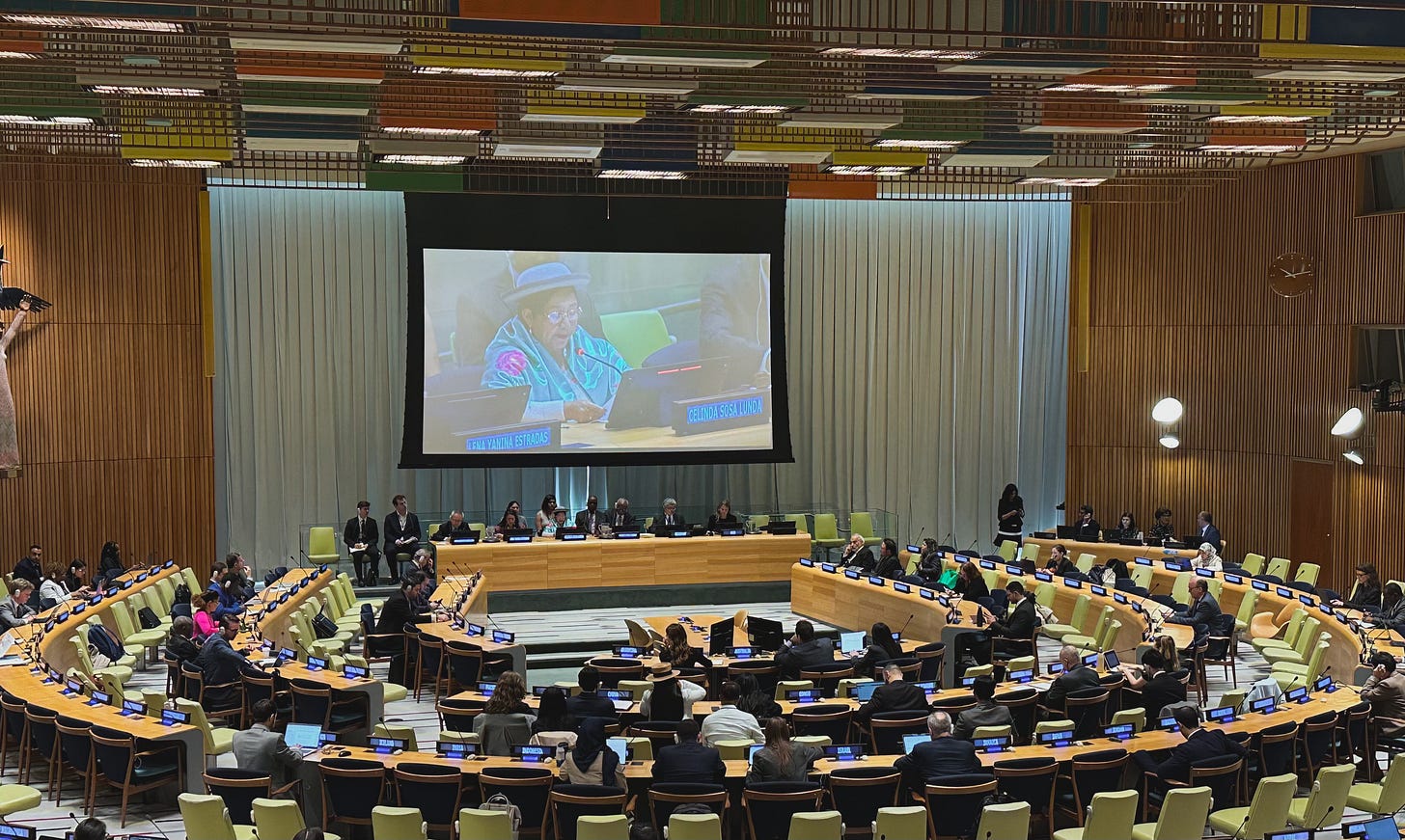A time for planetary cooperation & security
NEWSLETTER, April 2025 — Earth Month sees recognition of planetary health crisis & action to address it; launch of Climate Action & Food Systems Alliance; call for development in harmony with Nature.
April is Earth Month, and a time for discussions, advocacy, and practical work toward planetary cooperation and security. We are living through a planetary health crisis, in which the integrity, vibrancy, and resilience of natural systems that sustain life, are all at risk. That means it will become harder to produce sufficient food for all people, more costly to secure towns and cities against disasters, more difficult for institutions to manage new threats they were not designed to face. We believe everyone has a role to play in building a livable future. That means working in alliance to support climate action and food systems that are resilient, regenerative, and accessible to all; it means investing in sustainable human wellbeing, in harmony with Nature; it means aligning policies and incentives with local opportunity and the ability to participate in and shape the decisions that affect us. We celebrate the good-faith work of people cooperating to solve problems and improve chances for everyone.
Announcing the Climate Action and Food Systems Alliance
On Earth Day, Climate Civics and GIFSEP (the Global Initiative for Food Security and Ecosystem Preservation) announced the formation of a new Climate Action and Food Systems Alliance (CAFSA.net). The Alliance will bring together local and global civil society organizations (CSOs), in Africa, the Americas, and around the world, with interest in upgrading everyday food system activities to better align with climate goals and sustainable development.
Through partner networks, CAFSA will also facilitate enhanced discussion of practical links between food systems and climate action, including food-related finance innovation, data systems that translate science insights into everyday decision-making, and policy planning at regional and national levels. National policy planning includes the need for upgraded Nationally Determined Contributions to implementation of the Paris Agreement (NDC 3.0).
Learn how you can be a part of this new Alliance, or get registered for events at:
Living well in harmony with Nature
On Earth Day, Climate Civics joined the first high-level meeting of the United Nations General Assembly on Harmony with Nature and Living Well. Joseph Robertson entered into the record for this international convening a statement on the Climate Civics view that Living well in harmony with Nature is our best future.
The statement read, in part:
Planetary health is human health… To make Living Well in Harmony with Nature an achievable option for all people, our future food systems must utilize deep regenerative practices—supporting the preservation of biodiverse ecosystems and watersheds, without turning Nature into a commodity.
It also announced the creation of the Climate Action and Food Systems Alliance.
Policy Brief to the World Bank & IMF: We can free ourselves from chaos
Climate Civics and the Climate Value Exchange call on governments and multilateral agencies to design policies and incentives to transcend crisis.
2025 has been so far a time of deep turmoil, destabilizing long-standing alliances, financial markets, trade relations, food prices, and vast reservoirs of wealth. Across the world, future-building potential is at risk or vanishing, and there is fear of a prolonged period of compounded instability.
The key takeaway is that the policy response for this moment cannot be more of the same, and it cannot be a knee-jerk reaction to bad news. Executive administrations cannot act alone; they must work with stakeholders and constituents, and rely on cooperative leadership from representative legislatures. Those that do will be best positioned to craft the policies that are not only best suited for navigating this moment of disruption, but for investing in strategic priorities that will have lasting benefits and co-benefits.
Expanding the space for good outcomes
On April 30, Climate Civics held an Earth Month overview meeting, to review news and share insights about local activities. We had people joining from across Africa, as well as some in the Americas, Asia, and Europe.

We reviewed recent activities and events, shared updates about new initiatives, discussed important upcoming engagement opportunities, and invited stakeholder participation in the Climate Action and Food Systems Alliance and in the Climate Civics contribution to the SB62 round of United Nations Climate Change negotiations.
Among the updates from local climate advocates:
Training on climate-related science and policy;
Engagement with communities and local officials on climate vulnerability and resilience;
Tree-planting and other conservation-related initiatives;
Feeding stakeholder insights into national climate policy processes;
Gathering insights on standards for corporate climate reporting;
Appearances in local and national media.
Citizen volunteers and a coalition of civil society organizations organized a collaborative Beach Clean-Up exercise at Ada, Ghana, on World Earth Day April 22nd. In line with 2025 theme Beat Plastic Pollution, they educated attendees on preserving coastal heritage, and fostering community solidarity and the protection of marine life. They provided an example of responsible environmental stewardship by mobilizing people to clean up plastic waste.
Upcoming events
May 27 - June 6 – SB62 round of Earth Diplomacy Leadership workshops.
June 5 – The first meeting of the Climate Action and Food Systems Alliance.
June 5 – Climate Banking Innovation Dialogue.
More future events listed and linked at climatecivics.org/events





